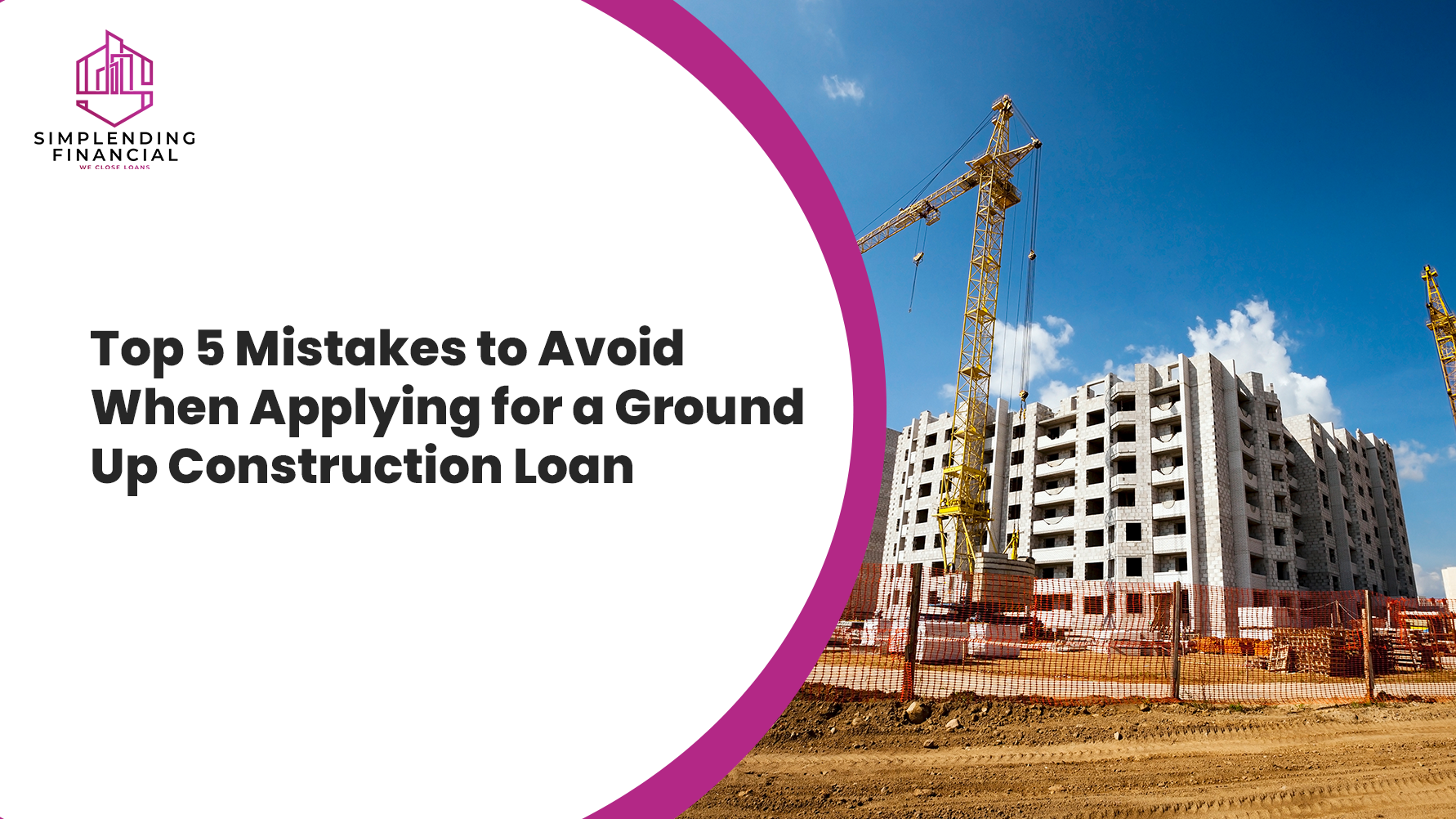Top 5 Mistakes to Avoid When Applying for a Ground Up Construction Loan
It is an exciting journey to embark on a journey of ground up construction work, whether it’s about building your own home, commercial building or a multifamily investment property. However, getting a secured ground up construction work is a hard nut to crack. A ground up construction work is all about getting finance for the entire construction work that starts from buying a land till the completion of construction work. However, qualifying for this type of loan requires a lot of preparation, process understanding and precision. You must know some common pitfalls of this journey, and today in this blog we have compiled top five mistakes which many people commit while applying for ground up construction loans. Let’s talk about what are the mistakes, how to avoid them to keep your budget on track.
Estimate the construction cost
Never underestimate the entire cost of construction work, it is one of the costliest mistake builders commit. The entire construction work will be completed in stages as per your project’s progress. Any miscalculation in budget can lead to delays, and cost overrun which can hamper your project. Why this matters: Lender will require your overall construction budget before financing. In case of too low budget, you may not get the loan approval- or worse, you may run out of funds in the mid of project. Avoid it through:- Collaborating with experienced contractor to get accurate estimates.
- Keep aside contingency funds (usually 10-15%) to address any unexpected situation.
- Set realistic expectations about material, labor and timeline expenses.
Choosing the wrong lender
Not all lenders provide you the same services, especially when it comes to ground up construction financing. Some have their expertise in residential loans, while others have worked more on commercial projects. So experience matters a lot. Why it matters: The complexity of ground up construction loans is more than that of traditional mortgages. Choosing a wrong lender may lead to slow disbursement, miscommunication, or even denied application due to lack of expertise. Avoid it through:- Collaborating with ground up construction lenders that have previously worked on projects similar to yours.
- Inquire about their construction loan progress, draw schedules and prior experience.
- Ask for reference from previous customers.
Lack of detailed construction plan and timeline
Lenders want to work on projects that are viable, feasible and will be completed on time and budget. By submitting a vague or incomplete construction plan, lender may reject your application. Why it matters: A ground up construction loan approval will depend on lenders’ confidence on your project scope, timeline and team. An incomplete plan will result in delay or even denial of funding. Avoid it through:- Hiring an experienced and licensed architect or general contractor to create a complete construction plan.
- Making a comprehensive blueprint, scope of work and realistic timeline.
- Show construction permit, zoning approval and compliance with building codes.
Insufficient pre-construction due diligence
You must do your homework before starting the construction work. Homework here means land evaluation, understanding of zoning laws, confirming utility access and knowing the local market. Why it matters: Lenders decide the project risk as per its location and feasibility. In case of incorrect zoning or if the location lacks basic infrastructure, your loan will get denied. Avoid it through:- Doing a deep research on environmental assessment on the property.
- Ensure that your project meets local zoning, land use and permitting requirements.
- Know about neighborhood demand, rental value, and resale potential if you are building property for investment purpose.
Unable to understand the draw process
In traditional lending, borrowers get the lump sum amount at the closing, while this is not the case with construction loans. They follow a draw schedule. This implies money is disbursed as per the completion phase of the construction work, especially after inspection to verify that the each stage is completed property. Why it matters: If draw schedule is not understood property, borrowers will end up with cash flow problems, delay in paying contractors and friction with the lender. Avoid it through:- Understanding the draw schedule from the lender
- Communicate the timeline clearly with the lender
- Be ready for the periodic inspection.
- Keep a record of expenditure.


